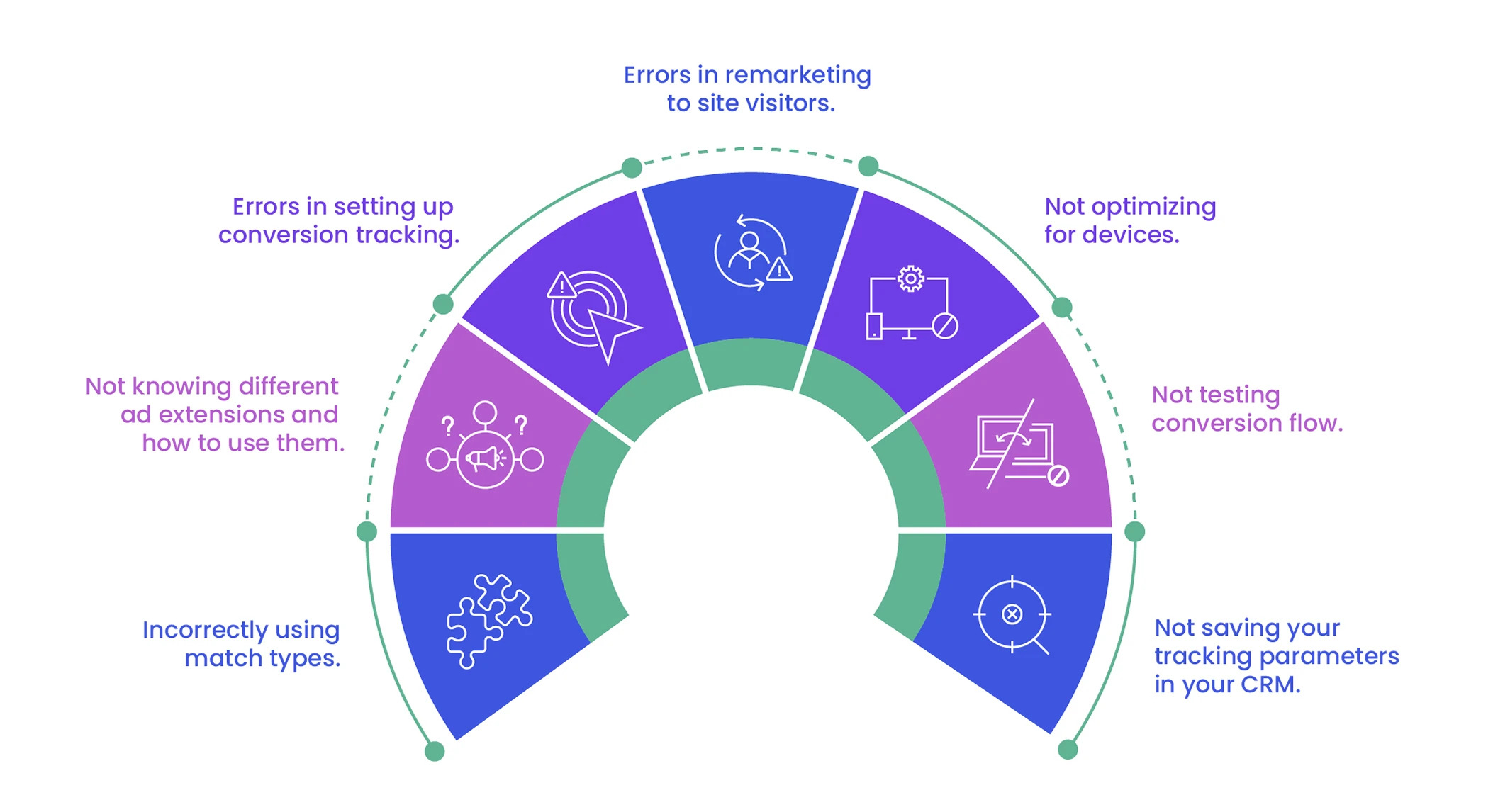Following up on our last blog 7 ways to Turbocharge your Paid Campaigns, and the response we got from clients and practitioners, we asked Sudheer and our team of experts to put together some of the mistakes committed by both beginners and even experienced search professionals. This is their cautionary tale.
1. Key errors with Keywords
Did you know 9 out of 10 keywords only get 10 monthly searches or fewer? So you need to up your keywords game. A common mistake is to select keywords for volume rather than intent.
High-volume keywords are also highly competitive so look for long-tail words that perform equally if not better. Clients' keywords list should be a starting point, not an endpoint. Doing thorough keyword research, Using the right keyword type, and segmenting your target keywords appropriately is essential for optimal results.
2. Not using negative keyword lists
Along with proper use of keyword match types, use a negative keyword list. For example, job seekers also search and click on business ads. So having jobs, careers, etc. added as -ve. Build a master list of negative keywords you can apply to all campaigns by scanning search query reports.
The next step is to use cross-campaign negatives so that you funnel traffic into individual campaigns. Once you finalize what keywords to target, and what geography to show your ads in, you must put the relevant exclusions in place.
Adding negative keywords, excluding the irrelevant audience, ensuring your keywords aren’t competing with each other. If you divide your campaigns by keyword match types: Add exact match keywords as negatives in your broad and phrase match campaigns.
3. Running irrelevant messaging or targeting
It’s important to add filters to your messaging. To filter out unwanted traffic (Example: If you don't provide a free trial, then mention pricing in the ad such as "starts at $10/month")
Make sure ads are running on the correct targeting; in some cases, there are these options such as "expanded targeting" that are selected by default, and we may end up spending $ on an irrelevant audience. Don’t miss out on targeting by location. Select locations most likely to convert based on your brand sales, stores, or just your customer demographics.
4. Ignoring Conversions
If you are running a Xmas PPC campaign for an ecom apparel site, which term is going to drive the most traffic, jeans or dresses? Well, it could be they are broad enough to get you traffic, but not necessarily conversions. Instead a specific term like “lbd party wear” could bring you less traffic but a higher conversion.
5. Making technical errors
There are a lot of rookie errors one can make when starting out on PPC campaigns.
Some common ones are

6. Not having an optimized landing page/website
Sometimes, campaigns are not at fault. even though you have the right campaign structure in place. The issue is the website or landing page which is not optimized for conversions. Users will land and bounce without taking any action; hence it's a wasted spend. Ensure there is continuity of the messaging and design from your ad to the page, and highlight a clear call to action.
7. Not optimizing for down-the-funnel metrics
Ad platforms like Google and Bing know the initial conversions. These leads move down the funnel, from the lead stage to MQL to SQL to closed deals. Telling the ad platforms what happened with these leads will help you optimize the campaigns for down-the-funnel metrics. Upload these conversions to your ad platforms. With the revenue associated with your offline conversions, you will have the advantage of optimizing for the right metrics like target ROAS, etc.
7 ½. Not persevering with the PPC
This one you don't need to sidestep as much as take a half step forward. PPC campaigns need time to start delivering. You need to try out different things and optimize over time. Very often, marketers make the mistake of pulling the plug just before the optimized campaign begins to yield results.
Users should get what was promised in the ad. Keeping the CTA as a focus element and providing a better navigation experience is basic. A better landing page that resonates with the ads and targeted keywords will also give a better quality score.
Arena Calibrate is a marketing dashboard tool developed by Position2 and used by many practitioners to track campaign metrics across key platforms and identify mistakes early in your campaigns to optimize your results.




